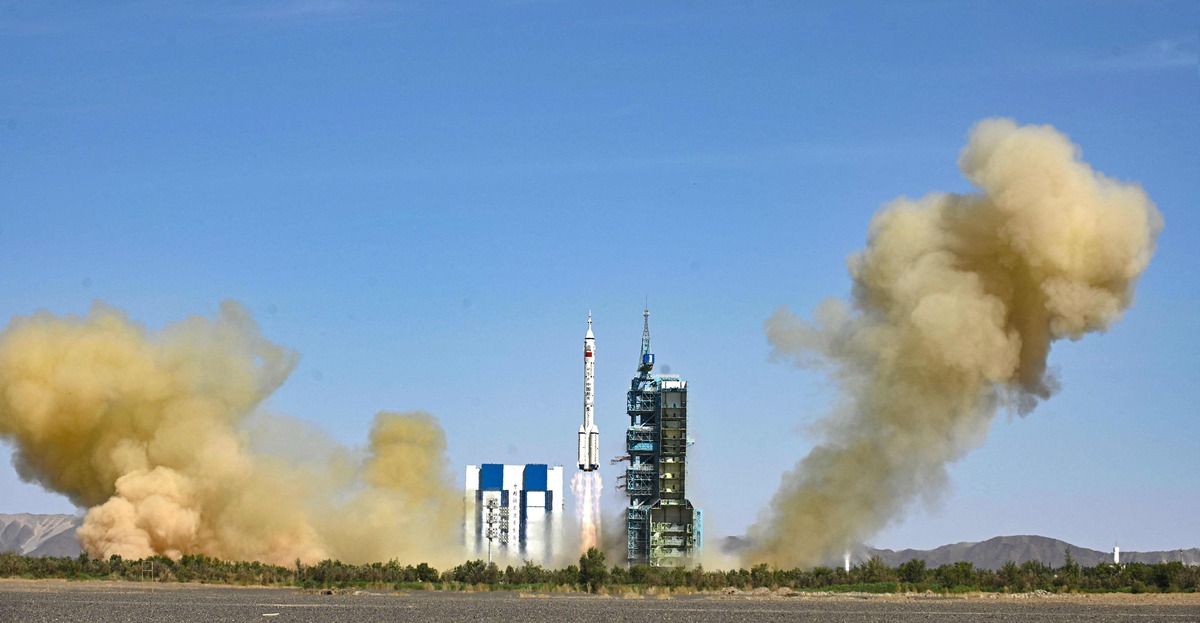On Tuesday, China will send a civilian astronaut for the first time in its history on a manned mission to the Tiangong Station, marking a new stage in pursuing its ambitions for space exploration.
Lin Shiqiang, a spokesman for the China Manned Space Agency, said during a press conference in Beijing that the astronaut Ge Haishu is a professor at the University of Atmospheric and Astronautical Sciences.
Until now, all of the Chinese astronauts who went into space had belonged to the Chinese People's Liberation Army.
The spokesman explained that Guy "will be primarily responsible in orbit for the management of shipments" intended for experiments in space science.
The civilian astronaut will work in orbit alongside Shenzhou-16 mission commander Jing Haiping and cosmonaut Gu Yangguo.
The crew will take off from the Jiuguan base in northwest China on Tuesday at 09:31 local time (01:31 GMT), according to the Chinese space agency.
Beihang University, the other name of the educational institution where Ge works, said the latter "belongs to an ordinary family" from the western province of Yunnan.
Projects within China's "space dream" under President Xi Jinping abound.
This large Asian country has invested billions of dollars for decades in its military-run space program, which has allowed it to compensate for a large part of its lagging behind the Americans and Russians in this field.
China sent its first astronaut in 2003, and the Tiangong (Heavenly Palace) space station has been fully operational since the end of 2022. In 2019, a Chinese rover landed on the dark side of the moon. And in 2021, China sent a small robot to the surface of Mars. It intends to send the first crew to the moon by 2029.
The last part of the space station successfully docked with the main structure of this facility in 2022.
This Chinese station is equipped with advanced scientific equipment, especially the "first cold atomic clock system" dedicated to space, according to the official New China News Agency (Xinhua).
Tiangong is expected to float in low-earth orbit at an altitude of 400 to 450 km, for at least a decade, to allow China to maintain a long-term human presence in space.
Crews will be sent permanently to ensure continued human presence in this orbiting laboratory, and will conduct science experiments and test new technologies.
Beijing does not intend to use the station for purposes of cooperation with other countries, as is the case with the International Space Station, but it confirms that it is open to cooperation, the extent of which has not been specified.
China was excluded from the International Space Station in 2011 when Washington banned the US space agency from any cooperation with Beijing.








Share your opinion
On Tuesday, China will send its first civilian astronaut into space